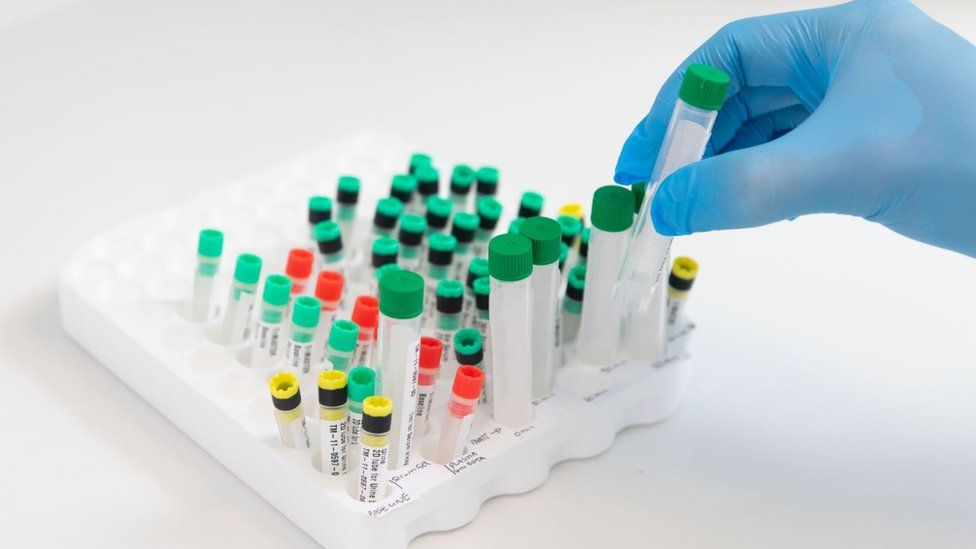Essex Strep A outbreak: Twelve people dead
- Published

Twelve people have died in a "very serious" outbreak of a rare contagious bacterial strain, it has emerged.
Thirty-two people across Essex have been infected with the invasive Group A streptococcal (iGAS) infection.
Public Health England (PHE) warned there was a "high risk" of further fatalities from the "ongoing outbreak".
It began in Braintree but cases have been found around Chelmsford and Maldon, a Mid Essex Clinical Commissioning Group (CCG) report said.
Most of those affected are "elderly and had been receiving care for chronic wounds in the community and care homes", the report said.
Dr Jorg Hoffman, deputy director of health protection for PHE East of England, described it as "a very serious situation".
He said: "This is still an ongoing outbreak. Unfortunately we have so far not been able to fully contain the situation.
"Obviously we are hoping that the efforts of our colleagues in the NHS and provider organisations are now bearing some fruit and we will be able to contain the situation and prevent further cases from happening.
"I cannot deny that there is still an ongoing risk until we can declare that this outbreak is over."
The CCG said the first cases were identified in February and it was discovered to be an outbreak in March.
Cases were diagnosed in Basildon in 2018 and Southend in February, but "currently there appears to be no direct link between these cases" and the initial outbreak in Braintree.
Hundreds of people, including staff in care homes, have been swabbed and community staff working for adult services providers have been given precautionary antibiotic treatment, the CCG said.
Rachel Hearn, director of nursing and quality at Mid Essex CCG, said: "The NHS in Essex is working closely with Public Health England and other partners to manage this local incident, and extra infection control measures have been put in place.
"The risk of contracting iGAS is very low for the vast majority of people and treatment with antibiotics is very effective, if started early."
What is strep A?
- Group A streptococcal (GAS) infection is caused by strains of the streptococcus pyogenes bacterium
- The bacteria can live on hands or the throat for long enough to allow easy spread between people through sneezing, kissing and skin contact
- Most infections cause mild illnesses such as "strep throat", scarlet fever or skin infections
- The bacteria rarely infects healthy people but if it does get into the body, causing serious and even life-threatening conditions it is known as invasive GAS
Source: Mid Essex Clinical Commissioning Group
Mike Bewick, independent chairman of Mid and South Essex sustainability and transformation partnership, said this was an unprecedented outbreak in the UK.
"There has been a slowdown of cases so far but it is too early to say that we have completely contained it," he said.
"We have had two in the last two weeks but we don't know if we have anymore as there is a lag time with testing."
He added it was a "very invasive and unusual organism" which they now recognised and he hoped that could save lives.
You may also be interested in:

Doctors have to report cases of iGAS to local authority public health officers to help prevent the spread of infection.
The number of cases reported almost tripled between 2013 and 2018 across England and Wales.
There were 664 reported cases in 2018 compared with 223 in 2013, data from PHE showed.
Among the 2018 cases, just 10 came from the east of England. The West Midlands saw 122 of them.
People over 65 accounted for 249 cases while 15 were less than year old.
Anyone concerned about the outbreak can call the CCG's freephone helpline on 0300 003 2124.